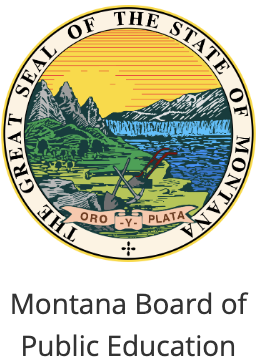Education Specialist, Curriculum & Instruction
Program Objectives
The Education Specialist Degree (EdS) in Curriculum and Instruction is a scholarly practitioner’s degree for graduate students who have earned their Master’s degree and intend to work within school settings or other educational contexts. The degree emphasizes doctoral level coursework to prepare students for specialized leadership positions where original research is not an expectation. It provides graduates the opportunity to develop the rich knowledge base needed to address problems of practice affecting the greater education community. The program offers multiple opportunities to impact diverse educational settings.
Course Offerings
The doctoral course of study features a combination of face-to-face and online courses. As such, it is considered an on-campus program which blends both formats of instruction.
Courses are offered in a regular, predictable rotation as much as possible. Core courses are offered at least once each year. At a minimum, all other courses are offered every other year. During the summer, courses are offered based on student needs.
The Graduate Course Rotation depicts a working schedule of course offerings and delivery methods.
Program Flow
After being admitted the student will be assigned a temporary advisor and should then meet with his/her assigned advisor. Actual courses taken during the initial stage will be based on the student's previous academic work and advisor/committee approval.
During the second semester of enrollment, the student will identify a graduate committee chair and committee members, establish and submit their program of study to the Graduate School.
Program of Study
| Course Number | Course Title | Credits |
|---|---|---|
| Research ~ 12 Credits | 12 | |
| Research - take the following required courses and add one other research course. |
||
| Educational Statistics II | ||
| Qualitative Educational Research | ||
| Quantitative Educational Research | ||
|
Or Research Electives appropriate to area of specialization & approved by Graduate
Advisor.
|
||
| EDCI 506, EDCI 501 or equivalent are prerequisite courses and do not satisfy research component of the degree. | ||
| Specialist Core ~ 12 credits; choose from the following: | 12 | |
| Advanced Educational Psychology | ||
| General School Curriculum | ||
| History & Philosophy of Education | ||
| Philosophical Issues in Education | ||
| Construction of Curriculum | ||
|
Substitute courses may be approved by Graduate Advisor.
|
||
| Social Justice ~ 3 credits; choose from the following: | 3 | |
| EDU 612 | Critical Race Theory | |
| EDLD 643 | Leading Social Justice | |
| Substitute courses may be approved by graduate advisor. | ||
| Professional Paper ~ 3 credits | 3 | |
| EDCI 575 | Professional Paper/Project | |
| Total Credits | 30 | |
| View the Graduate Research Methods 3-year rotation for both required and elective course offerings. | ||
Committees
Candidates will have a three-member committee. Candidates should work closely with their committee chair to prepare and submit a program of study. The majority of the committee should be made up of faculty from the degree-granting department. The chair and one other member must be from the Curriculum and Instruction faculty. The third committee member must have academic credentials in the area of the student's program of study and be approved by the Head of the Department of Education and Dean of The Graduate School.
Chairs
The student should carefully select his/her chair after thorough conversations with the Curriculum and Instruction faculty members. The chair will serve as the student's primary advisor and will give leadership and approval regarding the balance of the committee's potential membership. The committee, as a whole, is subject to the approval of the Head of the Department of Education. Chairs and members of a student's committee are subject to change. In addition, revision to the program of study can be made during the course of study with the chair's approval.
Professional Paper
The EdS student will develop a professional paper as his/her summative experience. The professional paper will address a specific issue and contextualized problem of practice using appropriate theory and research-based best practices. Specifically, the professional paper will: 1) frame the problem; 2) review pertinent research literature; 3) identify appropriate methods used to demonstrate the extent of the problem and the efficacy of the solution employed; and 4) provide recommendations grounded in research to solve the problem.
Additional Education Specialist Requirements
The Education Specialist degree must meet the minimum requirements under the For Doctoral Students section on found in the departmental website with the following two exceptions: 1) no dissertation is required, and 2) courses over seven years old at the time of graduation may not be included on the graduate program of study.
While many courses for the Education Specialist degree are the same as those for the EdD and PhD degrees, it must be clearly understood that admission to one program does not imply admission to the other. EdS students must formally apply to the EdD or PhD program as well as be in good standing with The Graduate School.
All EdS degree candidates are expected to be familiar with both The Graduate School's degree requirements: http://www.montana.edu/gradschool/policy/degreq_doctoral.html and Department of Education degree requirements listed on each of the three program's websites and the Graduate Student Handbook.
Department of Education Resources for Graduate Students
- Graduate Student Handbook: https://www.montana.edu/education/grad/handbook/index.html
- Graduate Course Rotation: https://www.montana.edu/education/grad/gradrota.html
- Department of Education Graduate Student Forms: https://www.montana.edu/education/grad/forms.html
- EDCI/EDLD 690 Semester Goals
- EDCI/EDLD 592 Independent Study
- EDLCI /EDLD 598 Internship
- EDU 690 Semester Goal Statement
Contact Information
Dr. Nick Lux, Program Leader
Curriculum and Instruction
Phone: 406-994-6581 [email protected]
Micki MacGregor, Graduate Coordinator
406-994-6786
[email protected]



